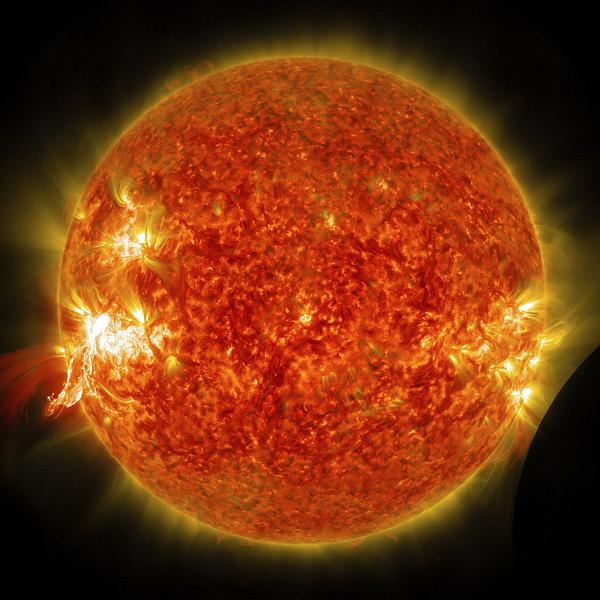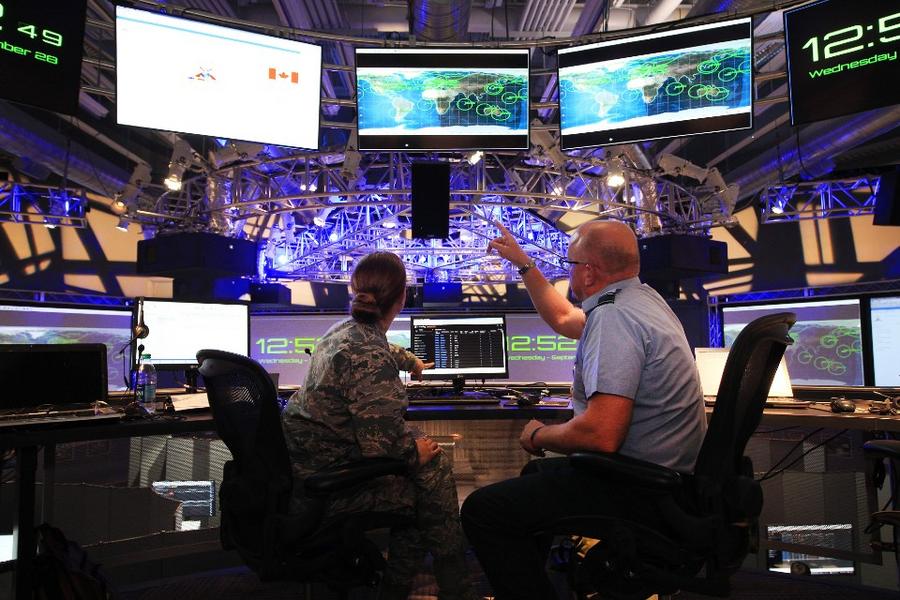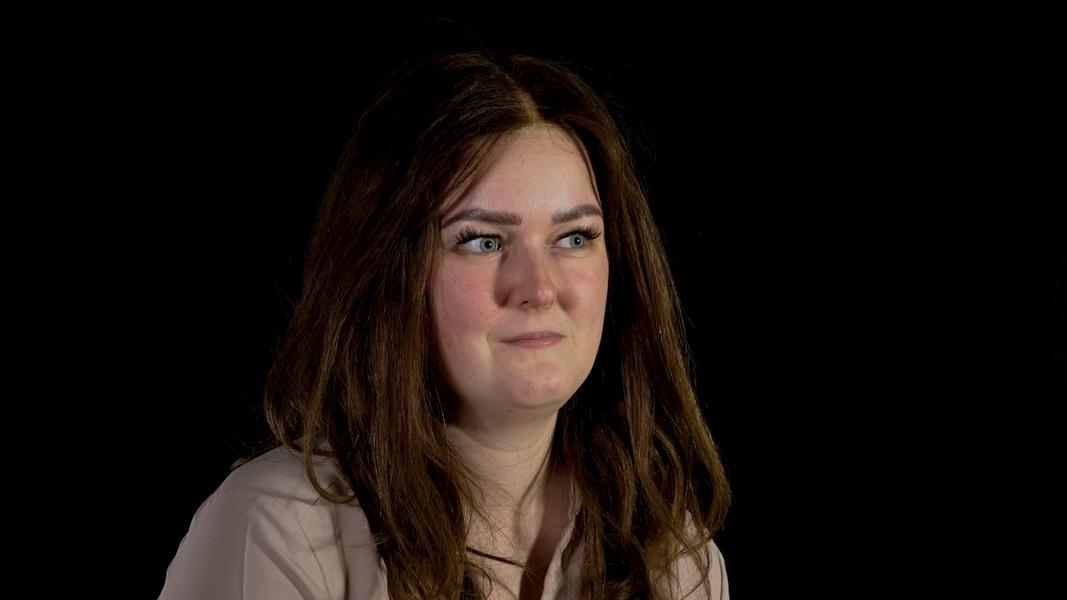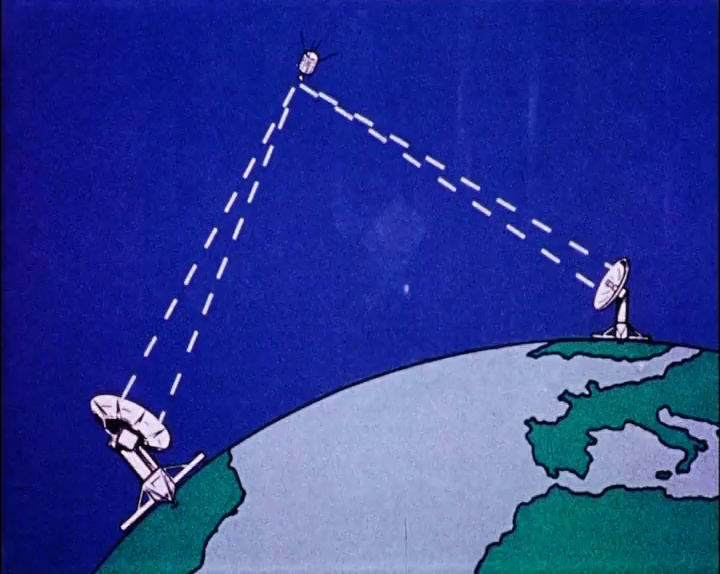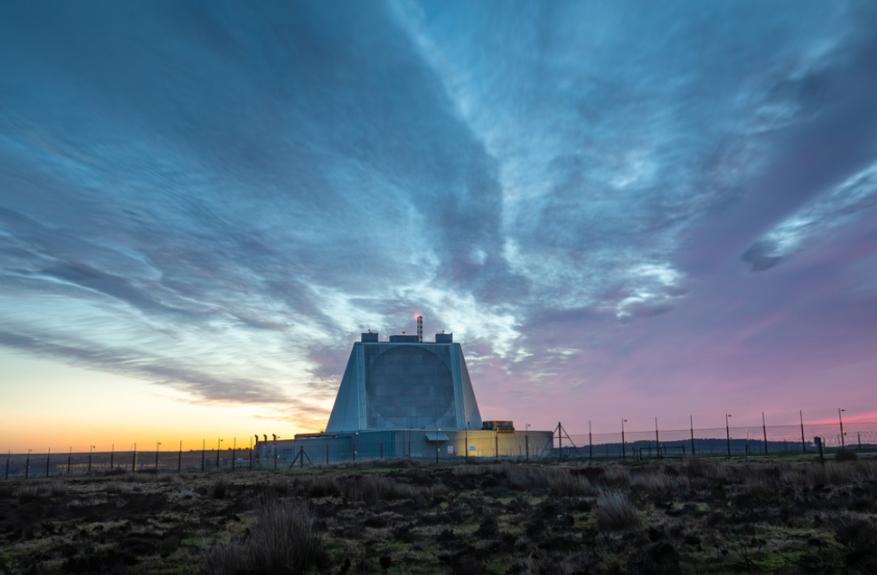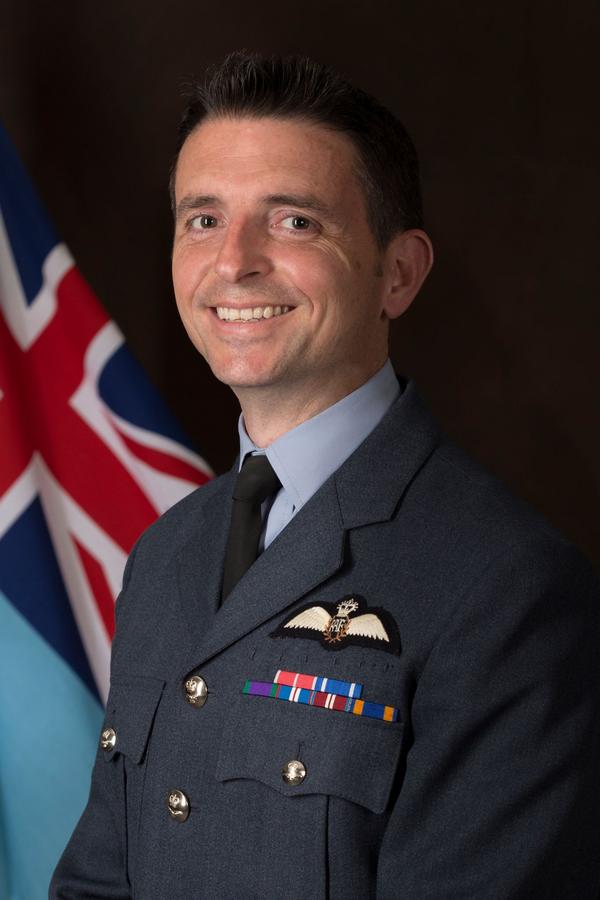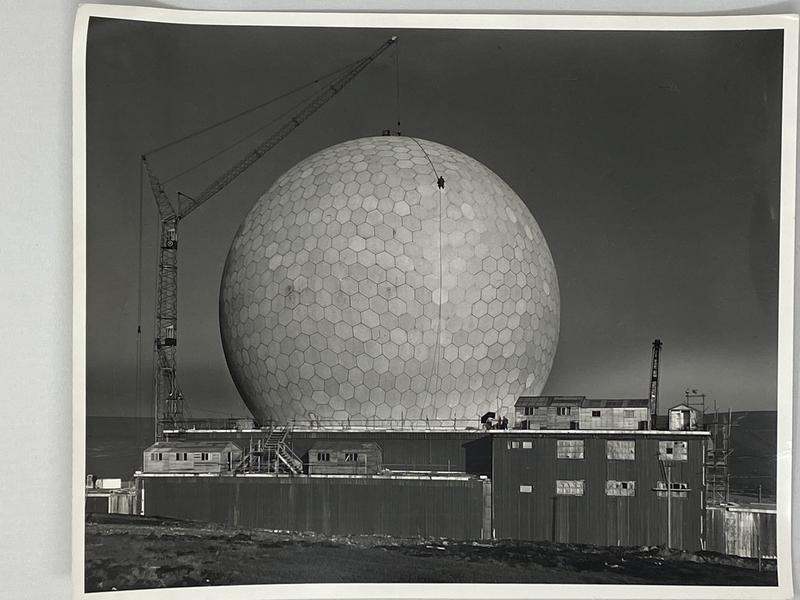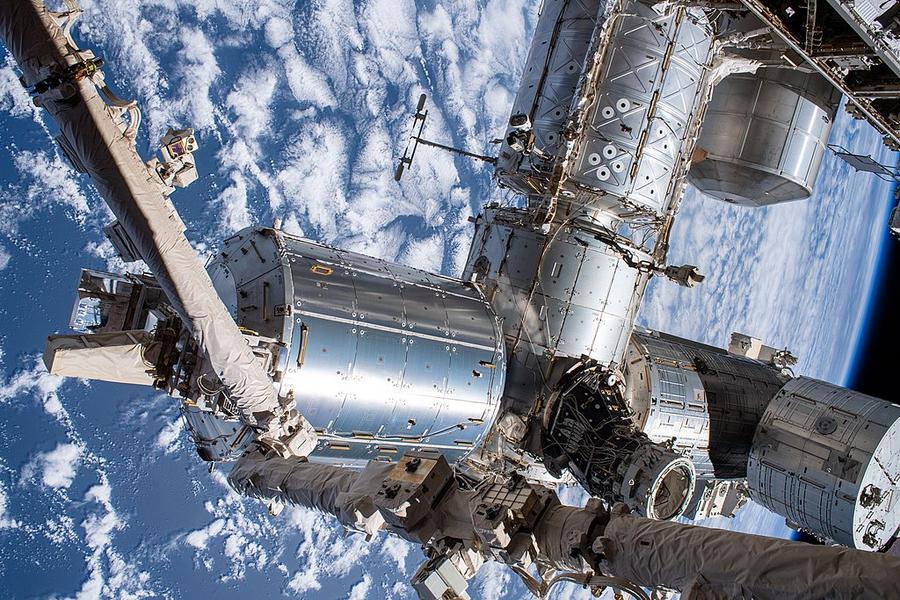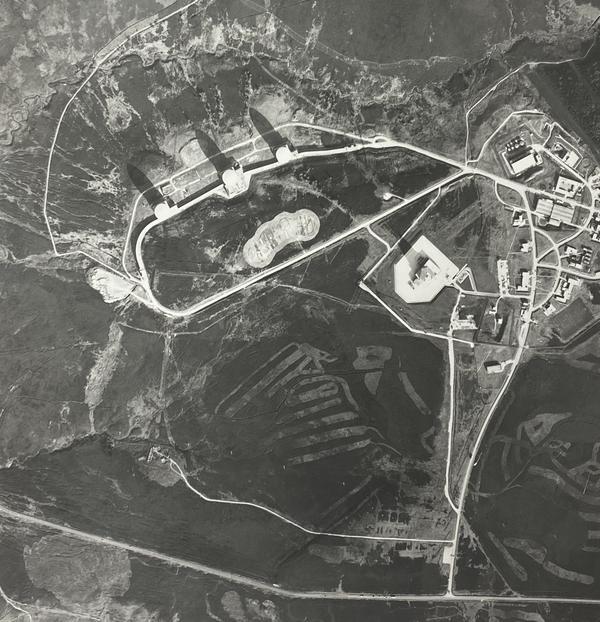and then you get space weather.
And space weather, basically, is the effects of the Sun.
The Sun's quite a massive nuclear generator,
essentially,
and it produces an awful lot of charged particles,
and magnetic field,
and radiation,
and all these sorts of things.
And we are quite well-protected from them on Earth
because we have a lovely atmosphere that keeps us very safe,
which causes all of our regular weather,
which is what we're generally interested in and bothered by.
But our satellites in space
are much more vulnerable to space weather.
And the Met Office do a wonderful job
of keeping track of what the Sun's doing
and the Sun's activity.
And if there's a solar flare,
or a charged-particle event,
or whatever else that might affect satellites,
we get a weather forecast, a weather update.
It's a nowcast and a forecast.
So you get told what's happening right now,
what they measured yesterday,
and then, what's gonna happen for the next few days
that's there as well.
You might have issues with Low Earth operations,
or you could have issues with high-frequency communications.
Or if there's a lot of solar activity
and the Sun's very warm,
you know, it's always warm, but,
it can heat up the atmosphere.
And when things heat up, they expand,
which means the air in the atmosphere
ends up higher than it usually would be,
so it can encroach more on the lower satellites,
which are the ones we track.
And when there's more air in space,
it hits the satellites as they fly through it
in the same way that when you drive down the motorway at 70,
there's a lot of air resistance.
And that drags the satellites down a lot quicker.
So we monitor space weather
because it affects how this radar works,
'cause it's a very, very sensitive, massive piece of kit.
And also, because it affects how satellites operate,
and it could mean that our decay predictions
are different or off,
or all of a sudden,
things look like they're decaying
more rapidly than they were before.
And we know that that is the case,
they are decaying more rapidly,
but we also know why that is,
and it's because of the space weather.
So that's why we monitor it.
We also monitor the regular weather.
Thunderstorms aren't fantastic.
We're very, very high up on the moortop,
and we've got an eight-story-tall radar,
so we're quite conscious of lightning and things like this.
So we monitor both types of weather.
